REVIEW: Massive Attack—100th Window (2003)
The darkest of dark horses in the band's slim catalogue.
100th Window is without doubt the dark horse of the band’s catalogue. If you asked the average fan what their favourite 10 songs from the band were, would any from 100th Window make the cut? I doubt it. But don’t take it from me, what do the band think? Well, put it this way, they tend to play just one track from it during their live sets—the opening track Future Proof.
Arriving almost five years after the mighty Mezzanine was always going to be a tough act to follow. But they’d managed to top each album during their incredible run in the ‘90s, so there was no reason to suspect they wouldn’t manage it again for this one. But when it came out, it just didn’t particularly catch fire.
The problem? A lack of bona fide hit singles. Special Cases at least had the guest vocalist star quality element of Sinead O’ Connor, but this was Massive Attack in full power “stark and dark” mode—the kind of dramatic, unsettling song that makes for an excellent album track, but was entirely bereft of the deft melodic sweetness of prior classics. It was like a soundtrack to the post 9/11 malaise. Whereas all previous albums had iconic singles that were (and still are) played endlessly, 100th Window simply lacked a Teardrop, an Unfinished Sympathy, a Protection, a Safe From Harm, a Karmacoma to act as the album’s Trojan Horse.
The only other track released from the album, Butterfly Caught, was, if anything even darker, sounding more like something destined to soundtrack a horror movie than anything Radio 1 would touch. And because it was released with so many remixes attached, it was too long to qualify for the singles charts in any case. This could be interpreted as Massive Attack sticking two fingers up to the notion of commercial success, and playing the game their own way—for better or worse. It hasn’t hurt them, in the long run, but they must look back and think they maybe could have done things differently.
The album’s genesis was certainly a rocky one, though. Having had both Mushroom and Daddy G leave the band in the years preceding the project (and Tricky before that), the new iteration of the ‘band’ effectively meant Massive Attack was now more or less a Robert Del Naja (aka 3D) solo endeavour in a creative control sense. A lot of fans don’t even regard this as a ‘real’ Massive Attack album as a result. I don’t think that’s true, but there’s no denying the total shift in style on the record.
The initial plan circa 2001 was to take things into an even rockier direction than Mezzanine, with Lupine Howl (formed from former Spiritualized members) brought into the studio to perform extended jam sessions, that would then be shaped by Del Naja, and co-producer Neil Davidge. When this didn’t work out, they scrapped the whole thing in early 2002 and started over.
Whether this creative cul de sac and loss of key members contributed to the direction of the record is hard to say, but the all pervading bleakness runs throughout the album. The closest the album comes to what you might think of as ‘classic’ 90s Massive Attack is What Your Soul Sings, another of Sinead O’ Connor three contributions to the record. Despite it being arguably the album’s Teardrop equivalent, the band (or perhaps the label) neglected to release it as a single. Whether the record would have be thought of differently had this song been a hit is hard to say, but it wouldn’t have hurt.
Listening to the album 22 years on is almost like hearing a whole new record from them. Because it has probably the least played, least heard in the wild songs of their entire career, there’s a strange freshness about it. Hearing Everwhen out of context, with Horace Andy once again adding his vocal talents to the band, it sounds like a direct continuation from where Mezzanine left off—in a good way.
If there is a problem with the record, I’d say two key things make it a harder listen. The first is simply one of editing. The length drags, for one thing, and that’s mostly to do with most songs hitting the seven minute mark. There’s absolutely no harm in the odd song stretching out, but the fact that this happens across the entire record doesn’t help. Subtle, judicious editing would have made a world of difference.
Sequencing is similarly crucial in any record, as you need a good sense of flow, but instead we get one long, dark mumbling song after another after another. If you take most of these songs out of context, they’re excellent slow burn songs. A Prayer For England or the Damon Albarn-assisted Small Time Shot Away good examples of that. They still stand up. Horace Andy’s Name Taken, too. You just have to kinda steep in their sleepy majesty.
You can imagine while they were coming up with these songs in the studio, they felt they were onto a good thing. But with distance, it just needed more time in the oven. A trimming of the excess runtime. One or two stronger tracks added with a lighter touch to bring out the best of the darker ones around it.
100th Window could have been another classic, but instead comes across as a product of troubled times, and a record that few fans reach for. And if you don’t agree with that statement, the Spotify figures make for persuasive reading. The tracks here have had between 1 and 6 million plays to date, compared to up to 340 million for Mezzanine songs. Even Heligoland songs have had up to 132 million plays.
It’s also perhaps telling that of the five main Massive Attack albums released to date, 100th Window remains the only one that has yet to be reissued. For vinyl lovers, that decision has meant that anyone wishing to complete their collection (who didn’t buy it when it came out) now has to part with around £150 for even one in fairly average condition. Retailers did list a reissue for this back in 2017, and in fact a test pressing confirms it was definitely planned, but for whatever reason, artistic, rights or otherwise, it was pulled. Surely one day it will get repressed, in a box set most likely.
It’s a shame more people can’t experience it this way, because it’s an album that really benefits from the 3LP, 45RPM treatment, and sounds huge on a decent setup (Small Town Shot Away is a great example—it truly comes alive!). At 73 minutes long (including the pointless 10 minute ambient ‘hidden’ track LP4 taking up the entirety of side F), it certainly needs the extra vinyl real estate, though any future reissue will end up costing somewhere around the £60 mark in today’s overpriced market, which will certainly focus people’s minds over whether they want it quite that much.
The trifold sleeve, too, is impressive, giving it a real deluxe feel. Back in 2003, I dare say only the real vinyl diehards saw the benefit, but these days, I think the appreciation for such an artefact will be much greater in these vinyl friendly times. The ongoing lack of a new Massive Attack album only serves to highlight a record like this. With only a handful of albums spread over 34 years, you tend to pick over what is actually available. It might not be their perfect album, but I’m sure glad it exists.
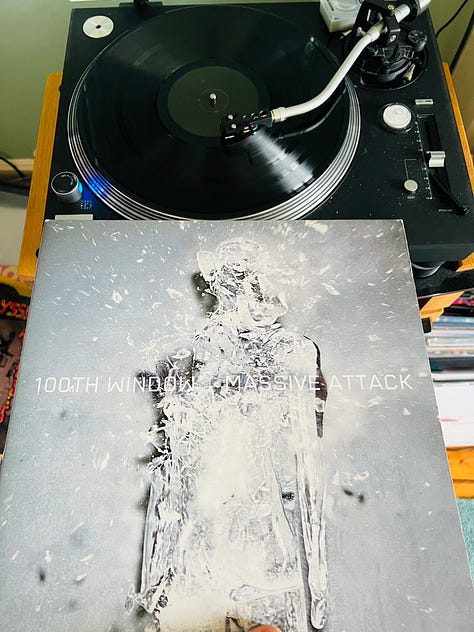
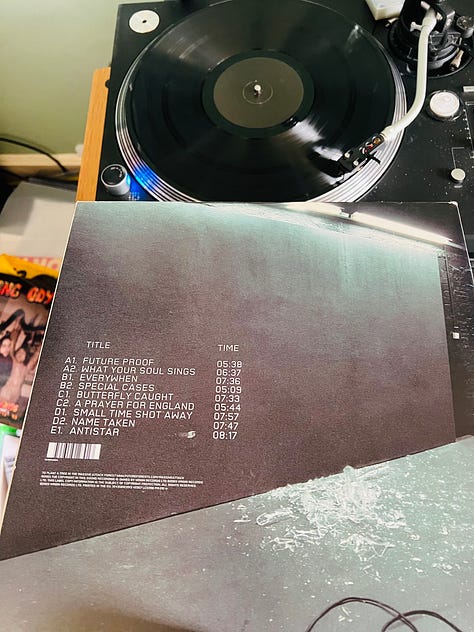
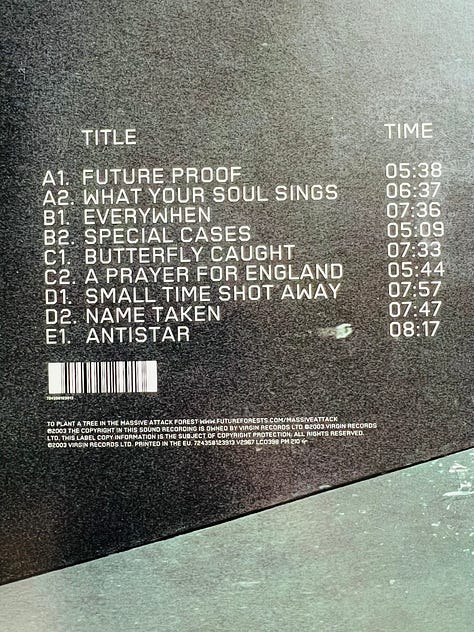
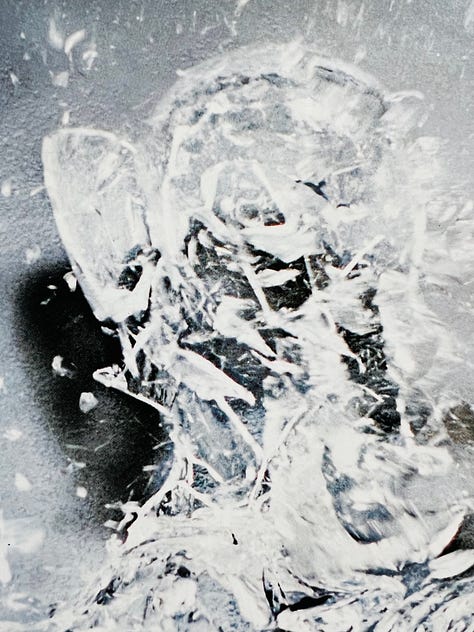
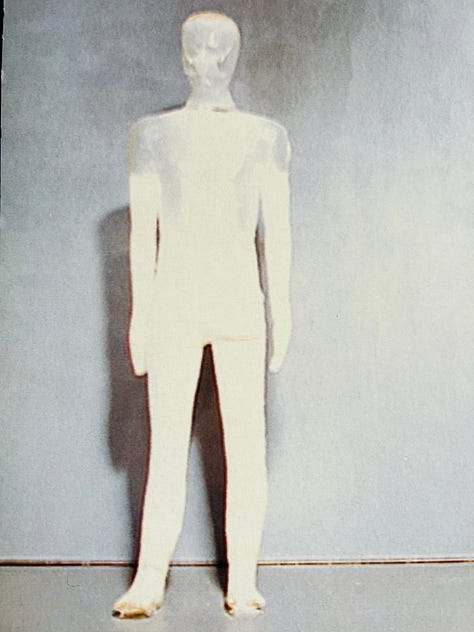
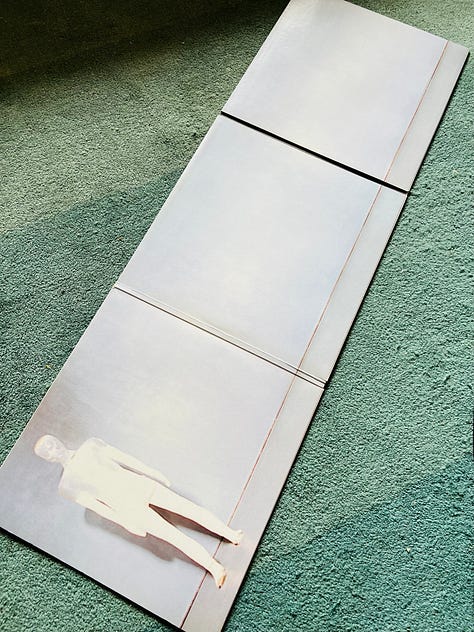

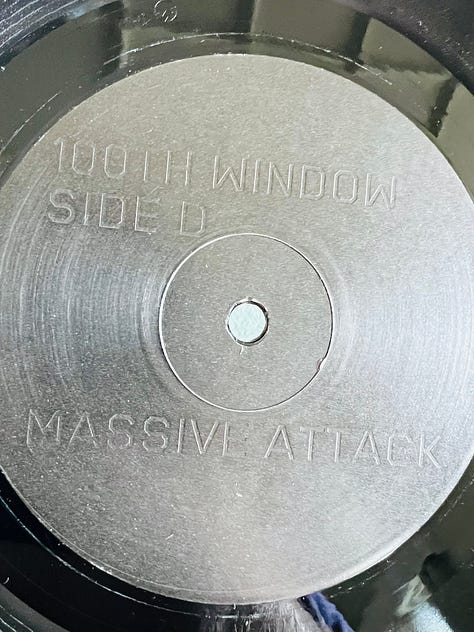
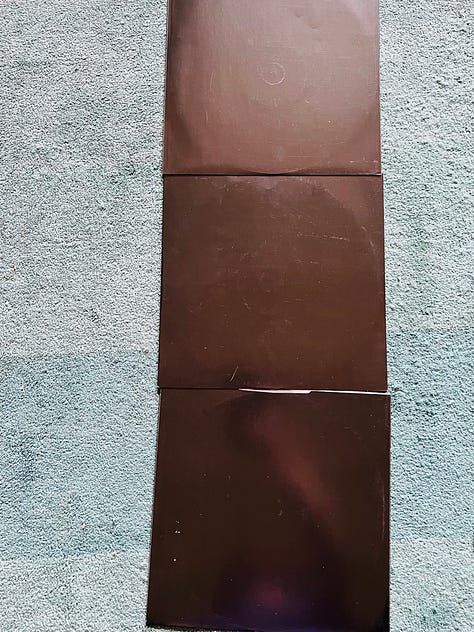




I know what you mean by ‘another chance’ with this one. I played it about 6 years ago to do the same, but unfortunately it still sounded dull and predictable. Adds to my theory that most ‘bands’ only have 3 albums to them at the most. Once you have concluded this it saves some time and disappointment.